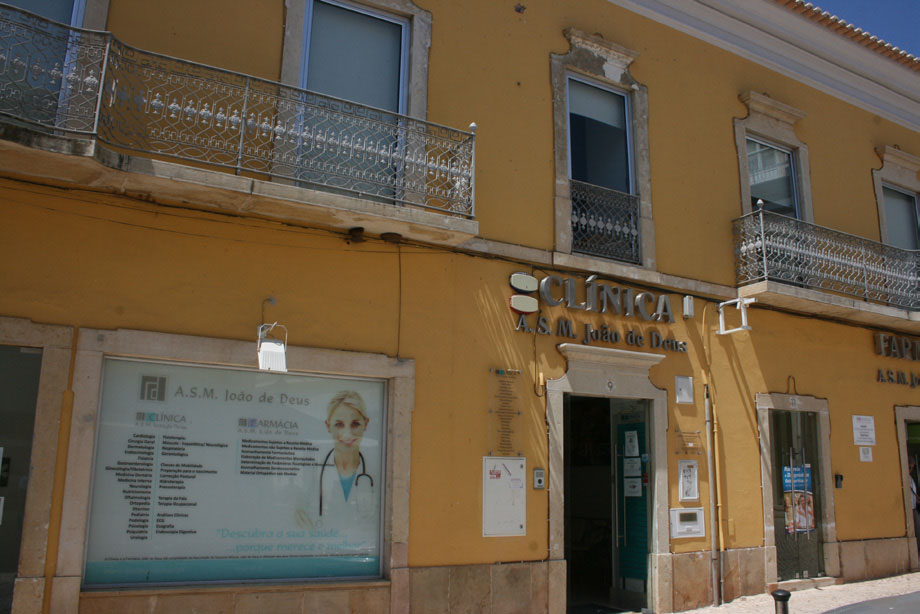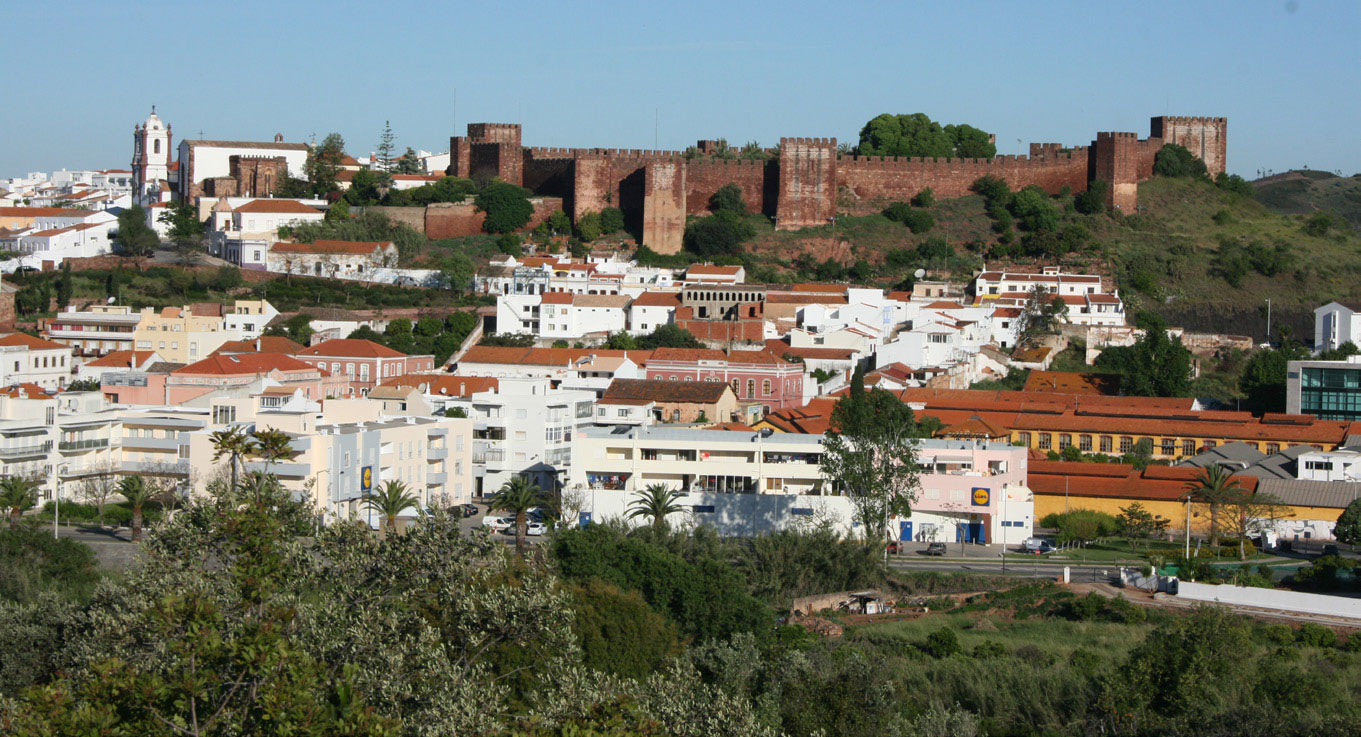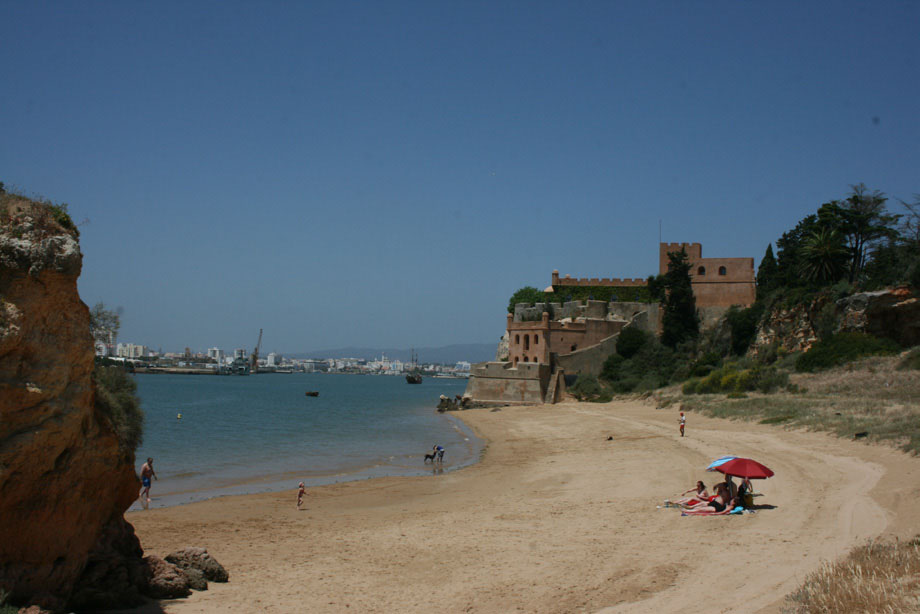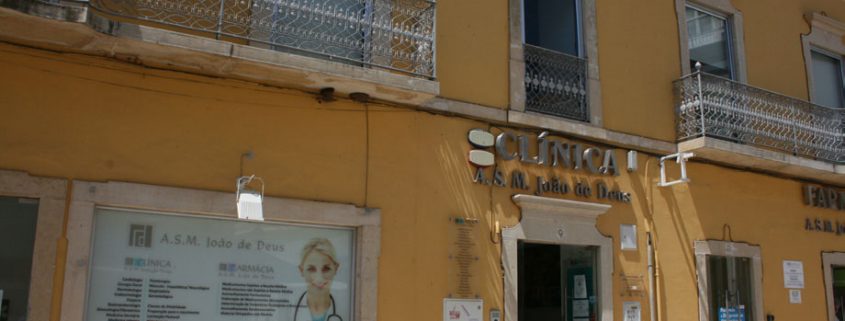Low-Cost Universal-Access Healthcare Culture & Citizenship
Low-Cost, Universal-Access Healthcare
Portugal’s healthcare system is broadly based on a universal franchise, which will not turn anyone away. Most hospitals will put patient before price (one of the reasons that the health system runs a deficit, but also the reason the country is generally known for its personalized and humane treatment of patients). With the tightening of financial controls, expect this to be slightly different if you are not resident or don’t have a European card. As in many European countries, state hospitals such as the one located at Portimão, 5 miles from both Lagoa and Silves, are normally better equipped for emergency situations than private hospitals. However, two large private hospital providers own and operate hospitals across the Algarve, with the closest being the Hospital Particular in Alvor. The hospital at Faro has an excellent reputation for cardiology and for successfully treating tourist visitors who have suffered heart attacks.

All residents are eligible to use the state’s healthcare system, called the SNS (Sistema Nacional de Saúde). European residents should ensure that they are in possession of the European Health Card (EHIC), issued by their home country, and which guarantees them access to the health system in the country that they are visiting. Access should not be confused with cost, and some services may cost more or less than in one’s home country, depending on the national policy in each of the 28 EU member states.
For non-Europeans retiring to Portugal, permanent residence authorization must first be issued by the SEF (borders agency) after the completion of usual background checks (see the “Residency” section below). The foreign resident must then register with their local health center, a simple process involving filling in some forms and having a local (owned or rented) address. Residents are assigned a doctor or in some cases go into a general pool, depending on the number of doctors per inhabitant (which can fluctuate with population growth or doctor retirements). Even without an assigned family doctor, there are general slots available and Lagoa, for example, runs a daily (including Saturday) local ‘emergency’ service, which can attend to up to 40 people who need see a doctor without an appointment, and who do not need the services of a hospital. Co-payment (if the person is not exempt) is €5 (outpatient copayments are around €7.75), regardless of whether one has an assigned family doctor or not.
Diagnostic exams are very affordable if ordered by a doctor within the national healthcare system (SNS). The Clínica de Lagoa, a private diagnostic and complementary exam center, offers a range of exams via its agreement with the national healthcare system, and most exams, such as ultrasound, X-ray, and mammography, will cost between €3-10 when prescribed by a doctor on the SNS. Several laboratories conduct blood tests at between 50 cents and €2. A full barrage of tests, including cholesterol, urine, and PSA (prostate tests for men) should cost between €15 and €20. A walk-in cholesterol test conducted at any local pharmacy will cost between €4-5.
It is recommended that foreign arrivals in the process of acquiring residence take out medical insurance for at least the first year, to cover bureaucratic delays and other unforeseen circumstances. Even thereafter, private medical insurance is not expensive when compared to the US and there are several private medical insurance providers available. IMG (including a policy which can be taken out even after your departure) and Bupa, for example, offer expat solutions and a range of national providers such as Medis and Multicare provide policies for those who are permanently in the country. There are also a number of brokers focusing on obtaining car and health insurance for foreign residents. Other foreign visitors not included in one of the above categories should ensure they carry adequate foreign insurance to allow them to use thenational health system, which is of good quality.

Maló Clinic, founded by a Portuguese immigrant, is now one of the largest private dental clinics in the world, present in dozens of countries in the world and whose founder is regularly flown to the US to perform dental surgery on wealthy patients. A Maló Clinic can be found about 10 miles from Lagoa and Silves, but Silves has three dental clinics where a clean and check-up costs around €40-50 (free on most dental plans), and Lagoa has several foreign-language dentists. The climate of the region means that convalescence is both quicker and more pleasant than in many countries further north. Doctors and specialists are largely multilingual.
Eye tests at local opticians are free if eye glasses are purchased in-store. A number of promotions are available—a recent one offered designer glasses with progressive lenses at €169. Consultations with ophthalmologists on the SNS are generally free but waiting times can be long.
One of our friends from the US needed to repair his $6,000 hearing aid, an imported Norwegian make. The estimated cost to perform the repair in the US was $900. He posted us the two hearing aids and €40-plus-postage later he had a fully functioning hearing aid at his home in Miami.
Health tourism is on the up in the region and the Algarve is well known for its health & wellness industry, with a number of spas in the region. A thalassotherapy center exists at Vilalara resort in Lagoa. And medical tourism is on the rise with several private hospital groups in the region investing extensively in the marketing of their services, primarily around discretionary (aesthetic) surgery, hip implants, and dental surgery. Although the region does not yet compete with the prices in more established medical tourism destinations, it places great emphasis on the pre-op preparation and post-op convalescence benefits that come with a warm, essentially dry (not humid) climate. Complementing this are the quality services and accommodation options, and a location within Europe.
Education And Culture
Silves is the location of one of the region’s private universities. The Jean Piaget University campus, opened in 2002, focuses on health including undergraduate and Masters programs in the areas of nursing, occupational therapy, and
pharmaceutics. It is in the area of physiotherapy, however, where it has garnered an enviable reputation. Its graduates are spread across Europe, poached by many countries that have made the most of Portugal’s woes post-2008 crisis. The trend is slowly reversing, with local projects providing a muchneeded source of employment for the qualified labor force. Residing in this area guarantees a flow of well-qualified health professionals, many of whom will, it’s hoped, eventually find themselves supporting the region’s senior residents.

Lagoa is one of the region’s centers of international (foreign language) primary and secondary schools. The International School of the Algarve, which comprises two sections, one teaching the British and the other the national (Portuguese) curriculum, was established in 1972. Although it allows children of English-speaking residents to attend school in their native English tongue, residents with children of school-going age should bear in mind that the range of subject options and in some instances the quality of teaching may not be the same as an equivalent private school in the UK or USA. In recent years, a German school has opened and now shares its premises with the Dutch school. The area is now a multi-lingual, multicultural hub with native teaching in four languages.
Lagoa is also an artistic hub housing a thriving musical academy, a cultural academy, an art center, and some of the region’s largest publications including Portugal’s principal foreign newspaper, The Portugal News. The musical academy, which forms part of a multi-city musical project, is headquartered in Lagoa and has an active orchestra comprising of a strings, woodwind, percussion, and brass sections, with musicians aged from eight to 65!
The orchestra plays frequently at public events, television concerts, open air shows, and at the well-equipped auditorium in the town. Lagoa’s cultural association, Ideas do Levante, promotes activities ranging from dance to music.
Becoming A Resident
U.S. visitors to Portugal do not need a visa under an agreement which allows for visits to Schengen countries of up to 90 days. However, all foreign citizens intending to move to Portugal must in the first instance request their long-stay (residency) visa at the Portuguese consulate in their home country. This will allow the Borders agency to issue a residency permit, valid for one year, and renewable for two further two-year periods. After five years of temporary residence, foreign citizens may apply for permanent residence.
The main requirements for a residency visa application include being able to prove sufficient income for subsistence, providing relevant identification documents, having no criminal record, travel documents, and proof of address in which the applicant will initially take up residency. Proof of medical insurance may also be requested but as a precautionary measure it is recommended that any non-EU citizens have private medical insurance when traveling to Portugal. Some companies such as IMG allow medical policies to be taken out when the person is already in the destination. Documents are normally submitted via the local consulate and they eventually make their way to the Borders agency (called Serviços de Estrangeiros e Fronteiras or SEF). I recommend traveling with a copy of the full application process and any relevant correspondence, to avoid any possible misunderstandings on entry. Once the residency authorization has been issued by SEF, applicants should register with the local finance office to obtain their fiscal number.
Recently, the Portuguese government has further improved legislation to allow anyone who has not been resident in Portugal for the previous five years to register for Non-Habitual Resident Status, which allows people to receive pensions and foreign income tax-free for 10 years. Once an individual has an authorization to reside in Portugal, such as via the Golden Visa program (see below), or has obtained a visa to enter Portugal with a view to permanent residence, then the process of applying for NHR status is relatively simple. A qualifying individual should meet two main criteria: they must not have been resident in Portugal in any of the previous five years, and they must be retiring to Portugal or fall into one of the approximately 30 occupations listed by the
government including architects, lawyers, engineers, senior management, health professionals, and individuals who will be fostering inward investment.
The applicant, probably accompanied by someone local who speaks Portuguese, must go to the local tax office (Finanças) and make a written statement that he-she meets all the criteria of eligibility, and then present a tax identification number (or request one), show their passport, indicate the residential address in Portugal (which may be a rented property), and show the residence permit. All applications must be received no later than the 31st March of the year following the one in which the applicant wishes to declare themselves resident under the NHR law.

The legal requirements to obtain residency in Portugal is to stay either 183 days in the country or a residential address on the 31st December of the corresponding tax year, which can be considered one’s habitual residence. While the latter condition may not appear at all stringent, it can be deceiving, for the simple reason that it is often not Portugal, but the applicant’s country of origin, that determines that they may not declare themselves resident in Portugal because they have spent too many days in their country of origin. As with all such matters, people intending to take up residency should carefully analyze the residency requirements of all the countries with which they have or plan to have ties to.
The Golden Visa program has proved to be one of Europe’s most popular resident visa-via-investment programs. Although there are three types of applications possible, it is the real estate option, involving the purchase of real estate with a value of at least €500,000 without recourse to credit, which has proved to be most popular. The Golden Visa is an excellent way for non- EU residents to obtain an authorization to visit or remain in the 26-country Schengen space for the duration of the visa, and after five years to apply for permanent residence and thereafter citizenship (after six years). The biggest advantage is that there are minimal requirements for remaining in the country, namely seven days in the first year and a total of 14 days in each of the subsequent two-year periods. Further, the Golden Visa allows the applicant and direct family members the right to enter, live, and work in Portugal, even if not resident in the country. Given that real estate values have suffered significant erosion as a result of the 2008 economic crisis, the Golden Visa is an attractive option for foreign investors.
When compared to comparable programs elsewhere in the world, the Portuguese Golden visa does not appear to have any disadvantages, even though a few other European states have implemented cheaper programs. The flexibility of the scheme, allowing for multiple property purchases, and the use of debt on values above €500,000, together with family-friendly legislation allowing close family members to benefit from the Golden Visa of the main applicant, have made Portugal’s program very popular. Unlike the US’s equivalent $500,000 EB-5 program that targets predetermined areas and projects, Portugal’s Golden Visa rules apply to any real estate in the country. Normal U.S. investor visas are $1 million.



